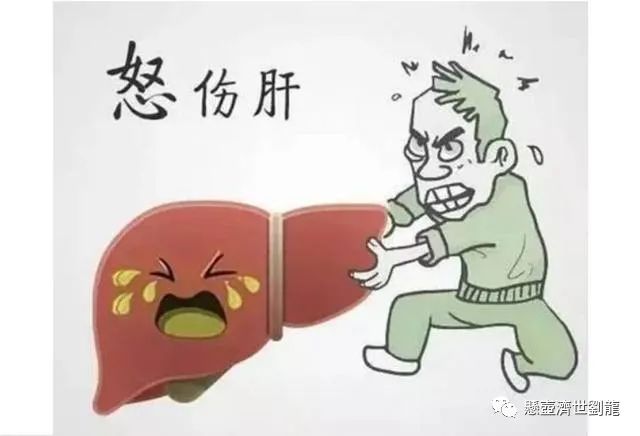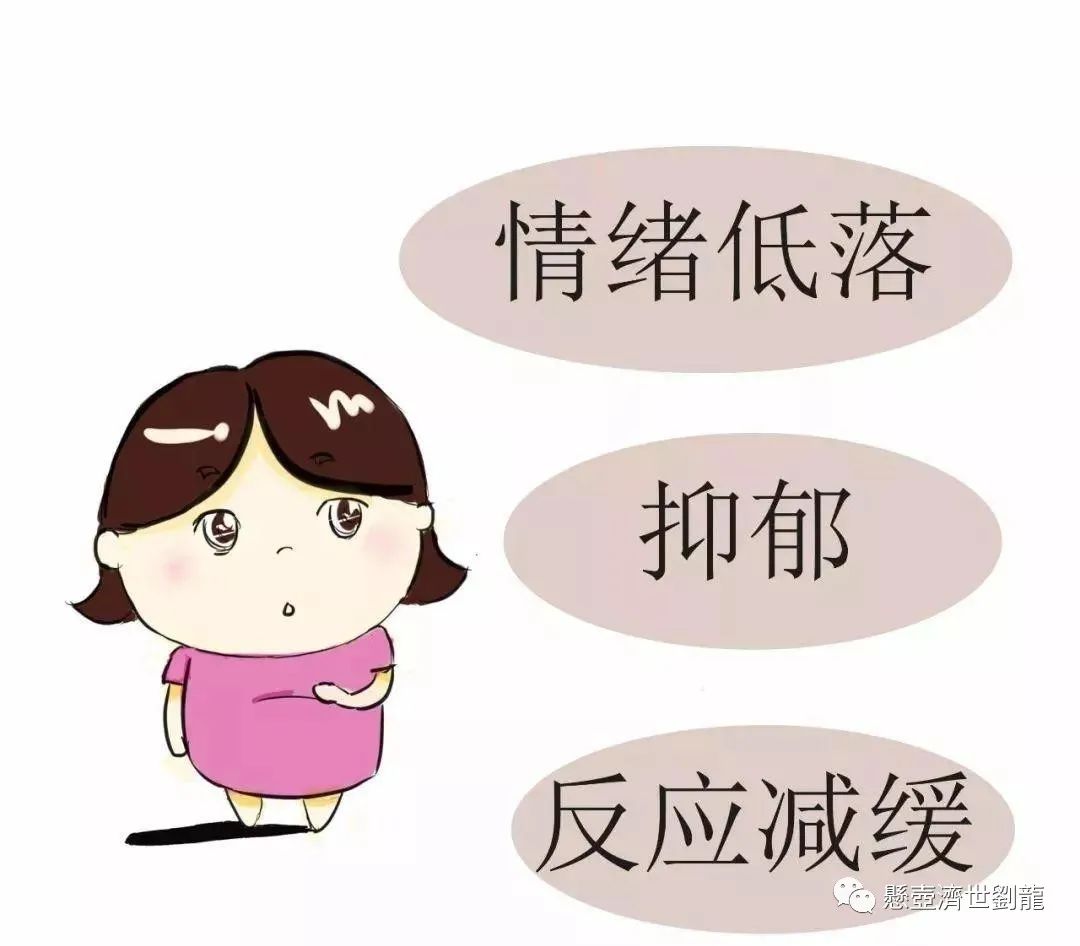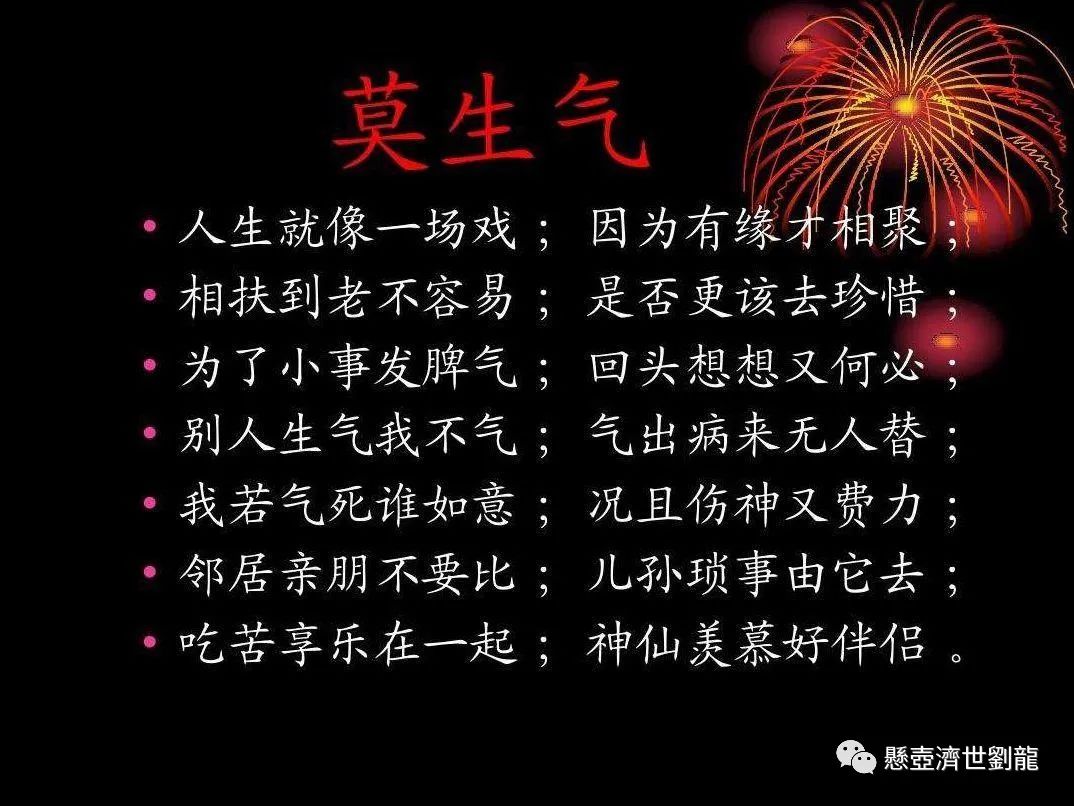

The Seven Emotions refer to the normal emotional activities of joy, anger, worry, contemplation, sadness, fear, and shock, which are responses of human consciousness to external stimuli. The Seven Emotions are closely related to the functional activities of the body’s organs.
The Seven Emotions are categorized under the five organs, represented by joy, anger, contemplation, sadness, and fear, collectively referred to as the Five Emotions. The Seven Emotions reflect different responses to objective phenomena, and generally, within normal activity ranges, they do not cause illness. Only sudden, intense, or prolonged emotional stimuli that exceed the body’s normal physiological activity range can disrupt the flow of Qi, leading to imbalances in the organs’ Yin, Yang, Qi, and blood, which can result in disease. Therefore, as a causative factor, the Seven Emotions refer to excessively strong, prolonged, or sudden emotional changes that lead to imbalances in the organs’ Qi and blood, resulting in disease. Illness caused by the Seven Emotions is termed Yin Yu Zhi Bing (illness caused by emotional stagnation). Additionally, certain chronic diseases can lead to long-term dysfunction of the organs, resulting in abnormal emotional states, referred to as Yin Bing Zhi Yu (illness leading to emotional stagnation). The Seven Emotions are also related to the body’s tolerance and regulatory capacity. The pathogenesis of the Seven Emotions differs from the Six Excesses, which primarily invade the body through the mouth, nose, or skin, while the Seven Emotions directly affect the related organs. The Seven Emotions can not only trigger various diseases but also significantly influence the progression of diseases, promoting either improvement or deterioration of the condition. As one of the main pathogenic factors causing internal injuries, the Seven Emotions are also referred to as Nei Shang Qi Qing (internal injury from emotional factors).

The Relationship Between the Seven Emotions and the Organs: The emotional activities of the human body are closely related to the organs. The basic principle is: the heart governs joy; excessive joy harms the heart; the liver governs anger; excessive anger harms the liver; the spleen governs contemplation; excessive contemplation harms the spleen; the lungs govern sadness and worry; excessive sadness or worry harms the lungs; the kidneys govern shock and fear; excessive shock or fear harms the kidneys. This indicates that organ pathologies can manifest corresponding emotional responses, and excessive emotional responses can damage the related organs. The theory that the Seven Emotions arise from and harm the Five Organs has significant guiding implications in diagnosis and treatment.
The Relationship Between the Seven Emotions and Qi and Blood: Qi and blood are the two fundamental substances that constitute the body and maintain life activities. Qi has a warming and promoting effect on the organs, while blood nourishes the organs. Qi and blood form the material basis for emotional activities, and there is a close relationship between emotional activities and Qi and blood. Changes in the organs’ Qi and blood can also affect emotional changes. Hence, it is said: “When blood is abundant, there is anger; when it is insufficient, there is fear.” The physiological activities of the organs must be based on Qi and blood, while emotional activities are manifestations of the physiological functions of the organs, thus the emotional activities of the human body are closely related to the Qi and blood of the organs.

Related to Mental Stimuli: The Seven Emotions are considered mental pathogenic factors, and their onset is always associated with significant mental stimuli. Throughout the course of illness, changes in emotions can lead to significant changes in the condition. For example, epilepsy is often caused by emotional injury; depression harms the liver, leading to liver Qi stagnation, which damages the spleen, resulting in phlegm accumulation, Qi counterflow, and confusion of the mind, leading to loss of control. Mania is often caused by anger, sadness, and resentment, which harm the liver and gallbladder, leading to unexpressed emotions, stagnation, and transformation into fire, which consumes body fluids, resulting in phlegm-fire that disturbs the heart and confuses the mind, leading to mental disorders. This illustrates the significant role of mental factors in the onset and progression of diseases.

Directly Injuring the Organs: Excessive emotional responses can affect the activities of the organs and produce pathological changes. Different emotional stimuli can harm different organs, resulting in various pathological changes. For instance, joy harms the heart; when the heart is harmed, it can lead to palpitations, scattered thoughts, inability to concentrate, and in severe cases, mental disorders. Although excessive emotions can harm the Five Organs, the relationship with the heart and liver is particularly close. The heart is the master of the Five Organs and Six Bowels; all life activities are manifestations of the functions of the Five Organs, which must be governed by the heart. Damage to the heart spirit inevitably involves other organs. Liver Qi stagnation and disordered Qi flow are also key mechanisms in emotional diseases.

The heart governs blood and houses the spirit; the liver stores blood and governs the smooth flow; the spleen governs transformation and transportation and is the pivot for the rise and fall of Qi, the source of Qi and blood generation. Therefore, emotional injuries often harm the heart, liver, and spleen, leading to Qi and blood imbalances. For example, excessive joy can damage the heart, leading to anxiety, palpitations, insomnia, irritability, panic, confusion, and even mental disorders, manifesting as uncontrollable laughter and crying, incessant talking, and manic behavior. Unresolved anger can harm the liver, affecting its smooth flow, leading to rib-side distension, irritability, sighing, or a sensation of obstruction in the throat, or due to Qi stagnation and blood stasis, causing women’s menstrual irregularities, dysmenorrhea, amenorrhea, and masses. Sudden anger can cause liver Qi to rise, damaging blood vessels, leading to massive vomiting of blood or fainting. If excessive contemplation occurs, it can harm the spleen, leading to poor appetite and abdominal distension. Emotional injuries to the heart, liver, and spleen can occur independently or often interact and compound harm, such as excessive contemplation harming the heart and spleen, unresolved anger leading to liver-spleen disharmony, etc.

Furthermore, emotional disturbances such as joy, anger, worry, contemplation, and fear can lead to disordered Qi flow in the organs, causing stagnation and transformation into fire, resulting in irritability, easy anger, insomnia, flushed face, bitter mouth, as well as vomiting blood and nosebleeds, which are manifestations of fire, termed Wu Zhi Hua Huo (Five Emotions Transforming into Fire). Emotional disturbances can also lead to Liuy Yu Wei Bing (Six Stagnations as Disease), where Qi stagnation leads to dampness, dampness leads to heat, heat leads to phlegm, phlegm stagnation leads to blood stasis, and blood stasis leads to food stagnation. In other words, Qi stagnation can lead to blood stasis, phlegm stagnation, dampness stagnation, and food stagnation as diseases.
Impact on Qi Flow in the Organs: “All diseases arise from Qi.” Joy, anger, worry, contemplation, sadness, fear, and shock are referred to as the Seven Qis, or Seven Emotions. Beyond the Seven Emotions, when combined with cold and heat, they are referred to as the Nine Qis. Qi is precious for its smooth flow, continuous movement, and regular rise and fall. Qi should enter and exit in an orderly manner, rise and fall regularly, circulate throughout the body, and remain unimpeded to avoid disease. If the changes in the Seven Emotions are extreme, Qi flow will be disrupted, leading to either stagnation or abnormal rise and fall.

Emotional disturbances can lead to Qi stagnation, or abnormal rise and fall. When emotions are not expressed, Qi becomes stagnant, leading to blood stasis, Qi stagnation can accumulate dampness and phlegm, transforming into fire and injuring Yin. This can manifest in the body or in the organs, leading to various diseases.
Emotional injuries disrupt the Qi flow in the organs, leading to abnormal blood circulation and imbalances in Yin and Yang. Different emotional changes manifest differently in terms of Qi flow disruption. Anger causes Qi to rise, joy causes Qi to relax, sadness causes Qi to dissipate, contemplation causes Qi to stagnate, fear causes Qi to descend, and shock causes Qi to become chaotic.
Anger Causes Qi to Rise: Qi rising refers to the upward reversal of Qi flow. Anger is associated with the liver. Encountering frustration or dissatisfaction can lead to temporary anger, which generally does not cause illness. However, if one experiences violent anger, it can harm the liver, causing liver Qi to excessively rise and lead to illness. When liver Qi rises, blood follows, which can manifest as dizziness, headaches, flushed face, tinnitus, and in severe cases, vomiting blood or fainting. Liver Qi can also affect the spleen, leading to abdominal distension and diarrhea. Diarrhea, also known as watery stool, can present as undigested food in the stool. If it affects the stomach, it can lead to belching and vomiting. Since the liver and kidneys share a source, anger can harm both the liver and kidneys. Kidney damage can lead to symptoms of fear, forgetfulness, and weakness in the lower back and spine. The liver is considered a thief of the Five Organs, thus abnormal liver Qi flow can affect the physiological functions of all organs, leading to various pathological changes.

Joy Causes Qi to Relax: Qi relaxation refers to the relaxation of heart Qi. Joy is associated with the heart. It includes both the calming of tense emotions and the dispersal of heart Qi. Under normal circumstances, joy can alleviate tension, leading to a pleasant mood and harmonious Qi and blood, reflecting a healthy state. However, excessive joy can lead to heart disease. Violent joy can harm the heart, causing heart Qi to disperse, leading to a lack of focus, fatigue, lethargy, and even palpitations, confusion, or mania.
Sadness Causes Qi to Dissipate: Qi dissipation refers to the consumption of lung Qi. Sadness and worry are associated with the lungs. Sadness is an emotional expression of sorrow and pain. Excessive sadness often consumes lung Qi, affecting the heart, liver, and spleen, leading to various organ pathologies. For instance, it can weaken lung Qi, leading to diminished energy and a depressed spirit, manifesting as shortness of breath, chest tightness, and lethargy.
Sadness harms the liver, leading to mental confusion, and can even cause muscle spasms and discomfort in the rib area. Excessive sadness can also injure heart Qi, leading to palpitations and confusion. Sadness can harm the spleen, leading to stagnation in the three burners, resulting in abdominal distension and weakness in the limbs.
Contemplation Causes Qi to Stagnate: Qi stagnation refers to the stagnation of spleen Qi. Contemplation is associated with the spleen. While contemplation is a normal physiological activity, excessive contemplation can lead to Qi stagnation in the middle burner, causing food stagnation and manifesting as poor appetite, abdominal distension, and even muscle wasting.

Excessive contemplation not only harms the spleen but can also harm heart blood, leading to heart blood deficiency, which can cause palpitations, anxiety, insomnia, forgetfulness, and vivid dreams.
Fear Causes Qi to Descend: Qi descent refers to the sinking of vital energy. Fear is associated with the kidneys. Fear is a psychological response of cowardice and dread. Prolonged fear or sudden fright can damage kidney Qi, leading to what is termed “fear injures the kidneys.” Excessive fear can cause kidney Qi to become unstable, leading to symptoms such as incontinence, seminal emission, and weakness in the bones. Fear injures the kidneys, preventing vital energy from nourishing the heart and lungs, leading to symptoms such as chest fullness, abdominal distension, anxiety, and insomnia.
Shock Causes Qi to Become Chaotic: Qi chaos refers to the disorder of heart Qi. The heart governs blood and houses the spirit; a great shock can disrupt heart Qi, leading to imbalances in Qi and blood, manifesting as palpitations, insomnia, anxiety, and even mental confusion.
Shock differs from fear; fear is self-aware, while shock is not. Shock can disturb the heart and can also harm the liver and gallbladder, leading to confusion of the mind, or affect the fetus, causing congenital epilepsy.
Emotional Fluctuations Can Alter Disease Conditions: Abnormal emotional fluctuations can exacerbate or rapidly worsen disease conditions. For instance, a patient with dizziness due to Yin deficiency and Yang excess, if provoked by anger, can cause liver Yang to surge, leading to dizziness, fainting, or even sudden stroke.

In conclusion, the Seven Emotions of joy, anger, worry, contemplation, sadness, fear, and shock are closely related to the internal organs. Emotional activities must be based on the essence and Qi of the Five Organs, and various mental stimuli can only reflect emotional changes through the functions of the related organs. Thus, it is said: “Humans have Five Organs that transform into Five Qis, giving rise to joy, anger, sadness, worry, and fear.” Emotional diseases primarily cause internal injuries to the Five Organs, leading to abnormal Qi flow, disharmony of Qi and blood, and imbalances of Yin and Yang. The specific organ affected can vary. The Seven Emotions arise from the Five Organs and correspondingly harm the related organs, such as joy harming the heart, anger harming the liver, and fear harming the kidneys. However, sometimes a single emotional change can affect multiple organs, such as sadness harming both the lungs and liver, or multiple emotions harming a single organ, such as joy and shock both harming the heart. Clinical analysis should be based on specific manifestations and not treated mechanically.

Consultation WeChat ID

